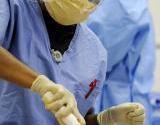For individuals, friends and families who are need to connect during life's challenging times. Share personal experiences, evaluate information and get support in a confidential, caring environment.
Sponsored Links
Main Menu
Healthy Sex
- Contraceptive Failure
- Birth Control Comparisons
- Contraceptive Failure Rates for Teens
- Human Reproduction
- STD Prevention
- Sexual Abstinence
Contraception For Women
- Barrier Contraceptives
- Oral Contraceptive Pills
- Hormonal Contraceptives
- Intrauterine Devices
- Female Sterilization
- Essure Micro-Insert
Contraception For Men
Natural Family Planning
- Download basal body temperature charts
- Sympto-Thermal Method
- Standard Days Method
- Breastfeeding for Birth Control
Ineffective Contraception
Abortion
Online Resources
Do C-Sections Short-Change Brain Development?
According to Yale School of Medicine researchers, children born vaginally experience different brain development and function as adults than do their caesarean section peers. The findings appeared in this month's issue of PloS ONE.
Natural birth or surgical birth appears to have an effect on what is referred to as mitochondrial uncoupling protein 2, or UCP2, a key protein in the development of neurons and circuits in the brain's hippocampus, where both long-term and short-term memories are kept. The protein also features prominently in the metabolism of fat inside the cell—a crucial part of breast milk.
This discovery led the researchers to conclude that natural birth induces the UCP2 protein and then smooths the transition over to breast feeding.
Natural birth appear to kick-start the expression of the UCP2 protein in neurons within the hippocampus, while in subjects delivered by caesarean section they found the UCP2 expression in those same regional neurons significantly diminished. In the laboratory, if researchers either knocked or found a method to inhibit the expression of the protein they could mimic the developmental defects in the hippocampus among caesarean section subjects in mice models.
The researchers concluded that "the increasing prevalence of C-sections driven by convenience rather than medical necessity may have a previously unsuspected lasting effect on brain development and function in humans as well."
Source: Medical News Today
Sponsored Links
Related Articles
Support Groups
The information provided on Contracept.org is designed to support, not replace, the relationship that exists between a patient/site visitor and his/her health professional. This information is solely for informational purposes and does not constitute the practice of medicine. We encourage all visitors to see a licensed physician or nutritionist if they have any concerns regarding health issues related to diet, personal image and any other topics discussed on this site. Neither the owners or employees of Contracept.org nor the author(s) of site content take responsibility for any possible consequences from any treatment, procedure, exercise, dietary modification, action or application of medication which results from reading this site. Always speak with your primary health care provider before engaging in any form of self treatment. Please see our Legal Statement for further information.











